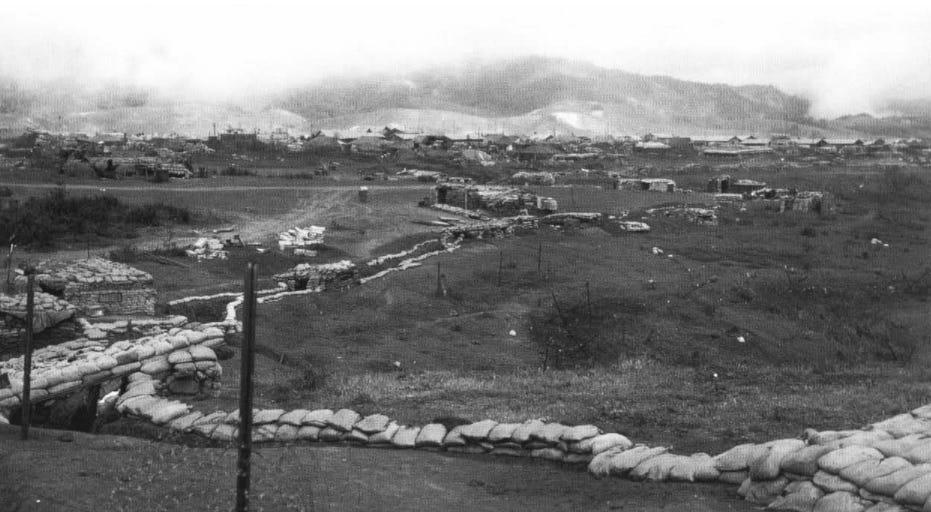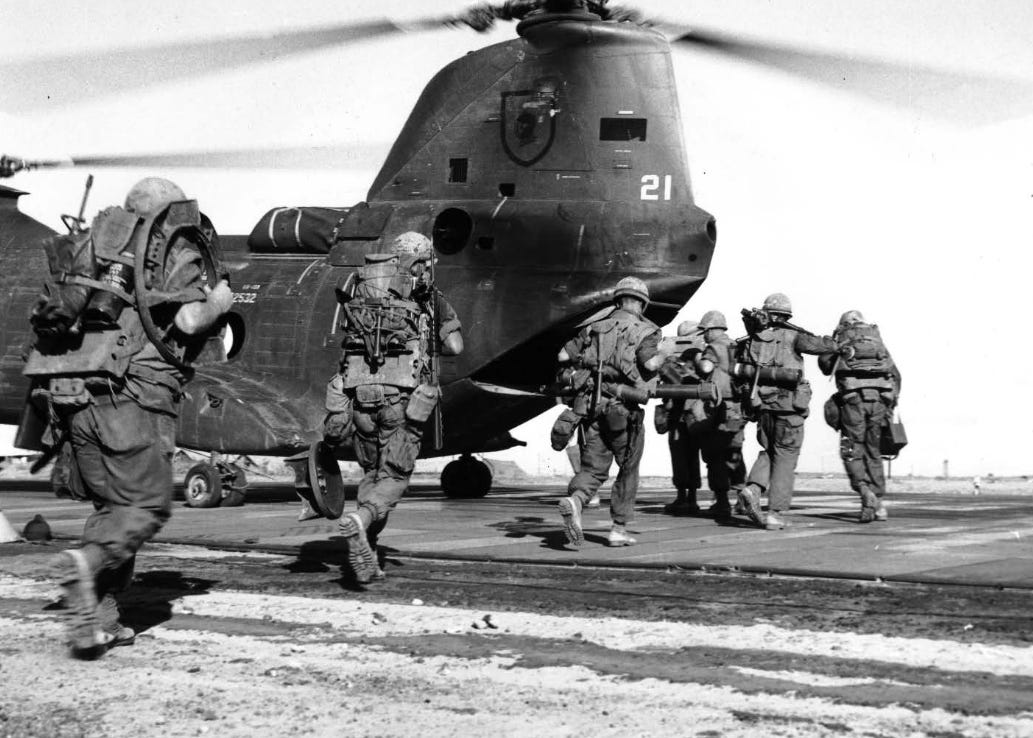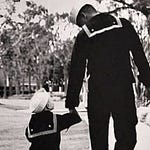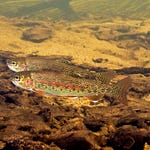In the early morning hours of June 27, 1967, a rocket and mortar attack struck the Khe Sanh Combat Base in northwest South Vietnam.

Four Marines were killed in the attack and another eighty-three were wounded.

At 8:30 that morning, a Marine patrol set off for a hill four kilometers to the west of the base where an observation aircraft had spotted enemy rocket and mortar launch sites.

When the Marine patrol reached the top of the hill, a large enemy force attacked them, killing and wounding several men.

The Marines called in defensive artillery fire and two Marine relief forces were sent in to help them.

But the relief forces encountered intense enemy fire, too, and had to engage in hand-to-hand combat.
The fighting on the hill went on until 7:30 that evening.
In the end, eighteen Marines lay dead.
A nineteenth would die later of his wounds.

The Secretary of Defense at the time was Robert McNamara.
Six weeks before the battle on the hill, he had sent a memo to President Johnson arguing that there were no good courses of action available which would bring America victory in Vietnam.
‘Sending in more US troops is not the answer,’ he had told Johnson. ‘Doing so would not win the war and would only bog us down further, leading to a major national disaster.’

But Johnson was determined not to be the one who ‘lost in Vietnam,’ and others advising him, who urged escalation of the war effort, had Johnson’s ear.
So McNamara kept his doubts private.

The public heard expressions of loyalty to the President and saw McNamara implement Johnson’s war policies.
They did not hear the truth.
Those guys on the hill deserved better than that.1

There is nothing wrong with loyalty in a public official.
But the question to ask them is ‘to whom are you loyal?’

Are you loyal to the president, or to the American people?


Lives hang in the balance.
Photos of the fallen are presented in this blog post.














Share this post